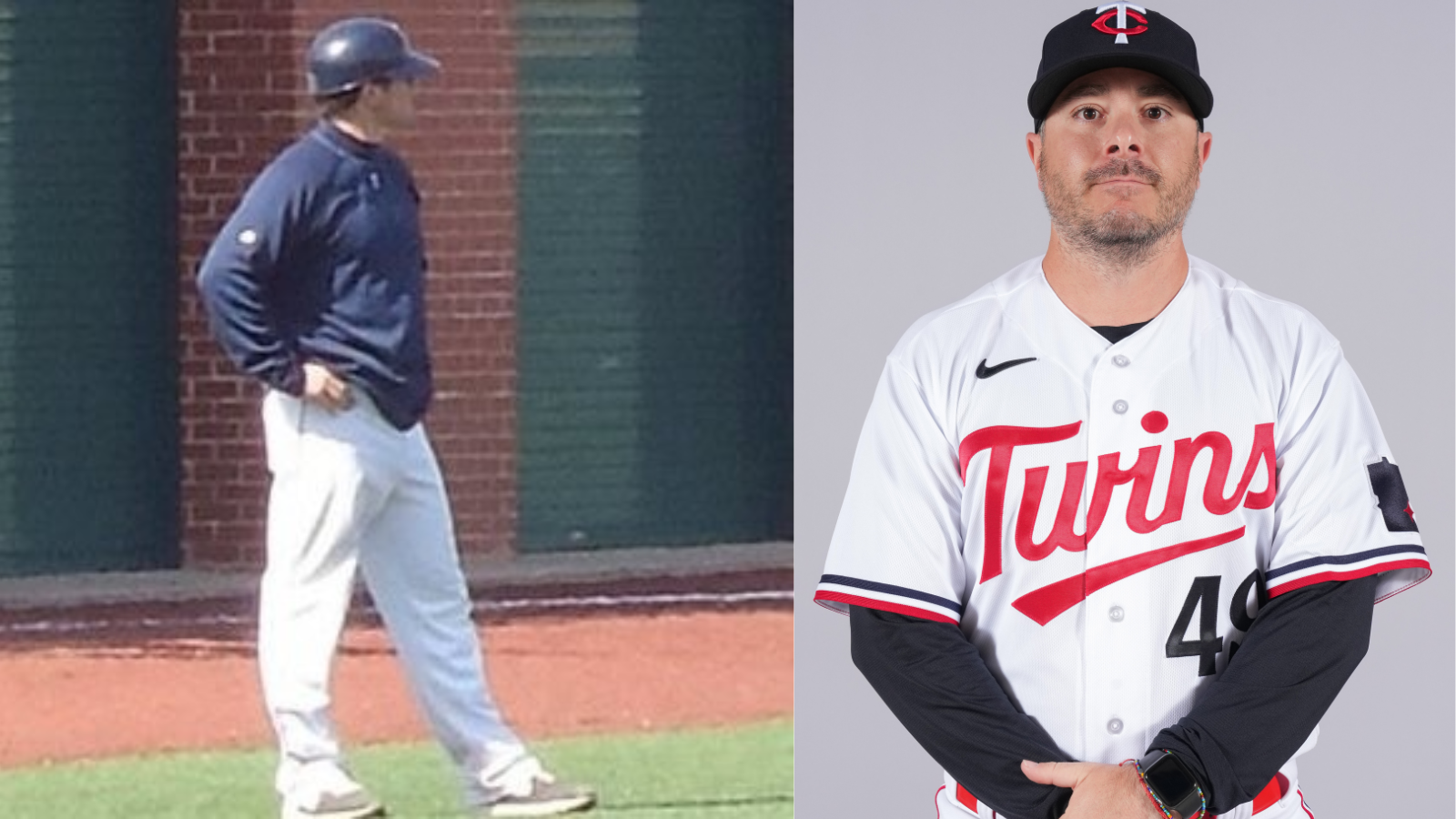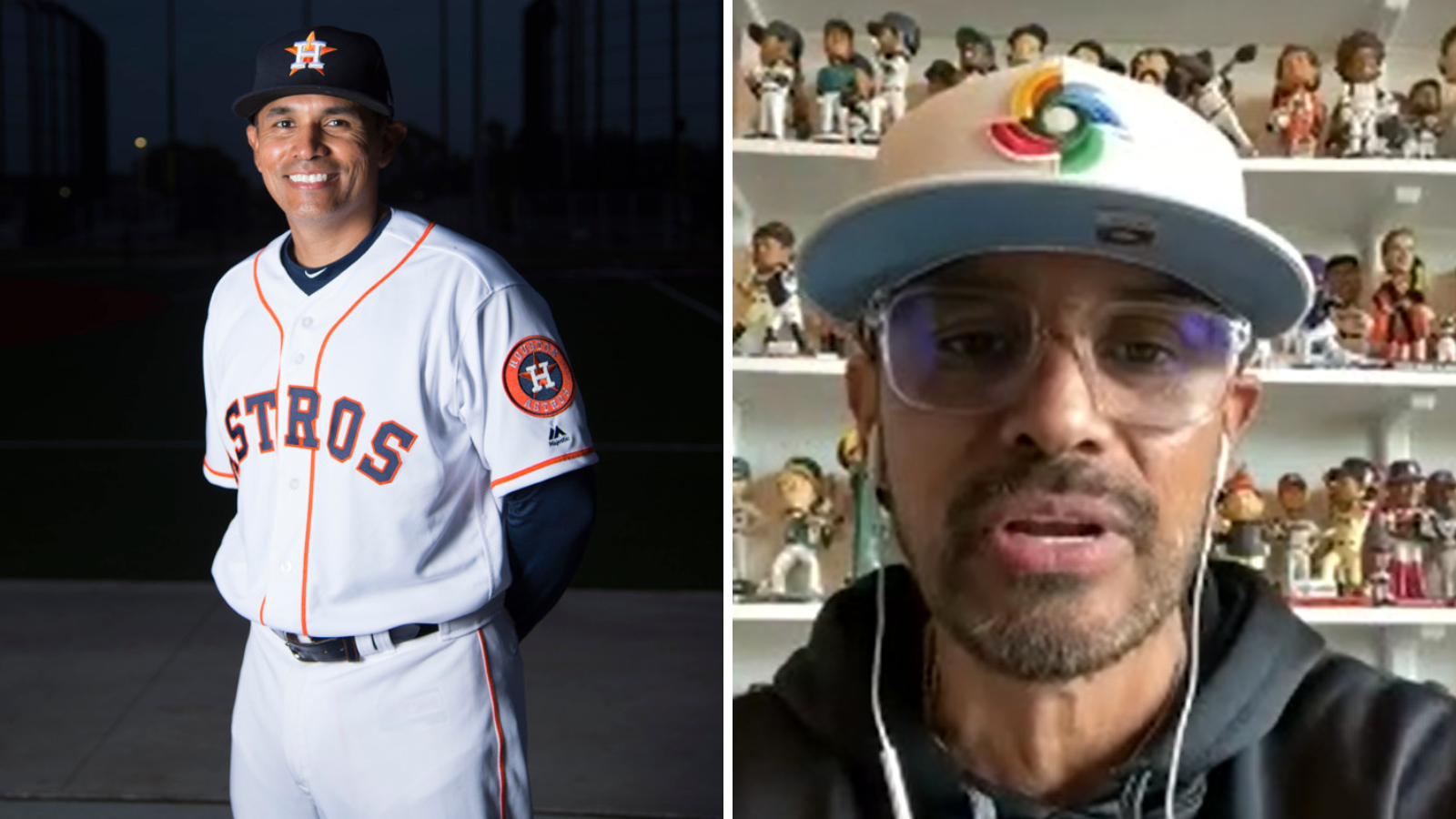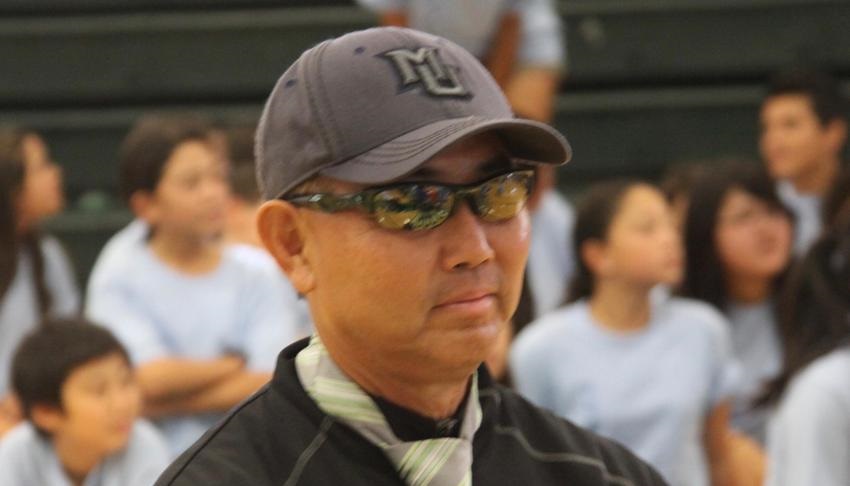Photo of Pittsburgh Hardball Academy infielder Brandon McClain-Banks, who is one of the program’s success stories, courtesy of Nelson Cooper IV
This is the 3rd in a series of interviews with people who teach defensive excellence. Our previous talks were with Hawaiian high school coaching legend Dunn Muramaru and Red Sox minor league infield coordinator Darren Fenster (click on the name to read the interview).
Nelson Cooper IV is the executive director and co-founder of Pittsburgh Hardball Academy, an organization whose goal is to remove barriers to entry while increasing diversity, equity & inclusion in baseball and softball to create positive outcomes on the field, in the community, and in life. The emphasis is on working with underserved and underrepresented kids.
Nelson played college baseball at North Carolina Central and is a volunteer assistant coach at Division II California University (Pa.).
Mark: Let’s start with this: What does defensive excellence mean to you?
Nelson: The easiest way to describe defensive excellence is the ability to consistently create efficient movements that allow players to catch and throw the ball correctly. Pretty simply, we teach our kids the importance of taking every rep.
On the field, whether it’s practice, whether it’s in the game, whatever they’re doing, we’re making sure that they’re taking efficient routes to the balls, being very efficient in their movements, and most importantly, being able to catch it and throw correctly.
It seems pretty simple, but we tell them before when we’re warming up and when we get loose that if we’re able to catch and throw the ball correctly in warmups, then we can translate that over to practice and then we can translate over to the games.
Mark: What was your origin story with defense?
Nelson: I started playing baseball when I was probably eight or nine. My mother and father met playing on my grandmother’s softball team. My mother played baseball in high school and then went on to play softball beyond high school and college. She made her high school baseball team as a middle infielder but got voted off the team by the other kids. She was a pioneer in Washington for girls in baseball. She moved to softball.
My mom was my first coach. My mom and my grandma. My defense story started in the backyard with them hitting ground balls and throwing the ball to me.
I’d say the most impactful defensive work and things that I’ve learned that we try to implement a lot in our program came from my time in college at North Carolina Central. We had some really good drills and really defensive work that we did during practice.
Mark: What are the things that you’re drilling into kids?
Nelson: The first thing we do is really making sure that the kids understand the importance of each rep that they’re taking. We prefer for them to take high-level reps, fewer high-level reps than a massive amount of reps.
When we step on the field, we have all of our players line their gloves up on the line. Not because that means anything in terms of defensive excellence. However, I do think it means something in terms of discipline.
And we drill this to our kids: Take those reps when you’re warming up and instead of just kind of tossing aimlessly, really practice to make sure you’re throwing accurately with proper mechanics.
|
About Pittsburgh Hardball Academy |
| * Founded in 2020 by Nelson Cooper IV and Brian Jacobson |
| * Program run primarily by volunteer coaches |
| * Created to make high-level baseball more accessible to low-income families |
| * Alumni are playing at junior colleges, NAIA, and NCAA schools |
Then, as the receiver of the ball, we have them implementing some sort of athletic game-like movement into their throwing routine. So if one player is throwing and just getting loose, that guy catching a ball or receiving the ball can move their feet like they’re taking a relay and throw through, or they can catch the ball and put a tag down.
We make sure every time we throw a ball on the field, it’s thrown with intent. That’s a big word in our program. We want them to make sure that there’s intent in all of their actions, even from starting our warmups.
We do drill work every day. So if it’s a pick series, if it’s just fielding the ball, getting to a proper throwing position to ensure that kids have their weight properly distributed after they field the ball, if it’s funneling the ball, if it’s throwing overheads to outfielders, making sure they’re taking proper routes, catching the ball, shuffling their feet, all those different things.
The one thing that we always like to end with after doing regimented drill work or regimented positional work is some fun aspect of the defensive practice.
One thing that’s been very successful for us, and I think the kids really like it, is trying to have 5-10 minutes at the end of all of that drill practice to make highlight plays or Web Gems.
So we’ll hit balls that are either unreachable or very difficult, encourage the kids to lay out for a ball or to try something new to field it. We try to make the highlight plays more routine. So the more that you’re able to make those highlight plays in practice, the more when those unexpected situations come in the game that it becomes a routine play for the players.
Baseball can be. challenging and very mentally draining. But if you give them the space to have a little bit of fun in the game, I think they can really grow and become great defenders. We tell our kids that if they limit their mistakes in high school, they’re gonna win games.
Mark: What are the things that the younger players have the hardest time picking up?
Nelson: Sometimes we have kids that are starting at 15 or 16 years old that haven’t had the skill or the development training from a very young age.
They’re going from more of a recreational background into a travel organization. It’s a kind of a jump for them. I think the biggest thing some kids struggle with is knowing the pace of the game.
You don’t have to be super quick to make plays. You don’t have to go very fast. You just need to be efficient in your movement.
So you don’t have to sprint out the ball and run through it and make a throw on the run every time. But you have to be able to read the ball, read the runner, and know how to stay under control and move as quickly as you can within the constraints of your body.
So if you’re super athletic, maybe you can move a little bit quicker than someone who’s not. But being able to utilize your body as efficient as possible, doesn’t mean you have to always go as fast as possible. But that also doesn’t mean you want to go very slow and methodical.
So I think it’s difficult for kids to understand that, particularly coming from the background that they are. We try to work through those things, and we tell them over and over that you want to work quickly. You want to be able to attack the ball, get into good positions, but you need to stay under control, have some body control and make sure you control your movements on the field,
Mark: Is that a hard thing to teach given that a lot of these kids are still going through physical growth?
Nelson: Oh yeah. It’s way easier for me to say that than it is for them to actually execute it.
We’ve had some kids now that we started with that started at 13, now they’re 17, 18, and you can see over time, consistent messaging, consistent practice allows those kids to be able to develop those skills.
I think that’s the hardest thing with baseball compared to some of the other sports. You have to be able to rein in your athleticism at times and be able to use it in controlled movements.
Mark: Are there any things that have happened recently that articulate good lessons in defensive excellence?
Nelson: I’ll give you a good example of blending the two things that we that we were just talking about, the reining in the athleticism part.
One just happened about a week ago. We have a 13-year-old-kid and the first time I saw him field, I was like ‘This kid’s gonna be special.’
He had the natural ability to chop his feet to slow down to field the ground ball while still moving through it and putting his feet in good position. There’s a ground ball hit to him and he bobbled the ball.
We usually teach our kids that if they bobble the ball to pick it up and do a full-arm fake to see if they could try to get another runner out. If you full-arm fake, you might be able to catch a runner off guard.
Well, this very athletic kid bobbled the ball, picked it up and just immediately went into like a Derek Jeter jump throw across the infield with the batter almost at first base.
He made a throw that was right on the money. Maybe it wasn’t the best decision to make the throw, so a learning moment for him, but a learning moment for us as coaches, as I would never have known that the kid could make that play if he didn’t make it in practice.
I think that’s one thing that we can learn from coaching: Let them be athletic to a certain extent and see what they can do, but obviously try to rein in and put it in the most efficient package as possible.
Mark: If you could fix something about what kids are taught with regards to playing defense, what would that be?
Nelson: I would have kids be more aggressive defensively at a younger age. A lot of times, particularly in the outfield, you see kids run up to the ball and they just let it drop at their feet instead of leaving their feet to try to slide and make a catch. And I think it comes from the shock of maybe a time when they dove for it and it got past them and went to the fence.
Kids are definitely gonna make errors. Pros, make errors, everybody makes errors. But there should be a space for kids to really understand that they can still be aggressive to the ball. Teach that from a young age, that even if you make that mistake, you still have to stay aggressive because the only way to really consistently make outs is to be aggressive to the ball.
Mark: What about the idea of letting athletes be athletes?
Nelson: You can’t just let kids run wild on the field. But I think you should make space to allow those higher-level players or those more athletic players to try to make great plays when necessary. If that ball is way up the middle and the only way you can make that plays to lay out or to dive or try to pick through it or do something, great, do it. However, on routine balls, let’s just make the routine play.
And I’ve always said, you don’t need to be flashy. The flashiest thing to a scout or to a coach is a high fielding percentage.
And then once we’re able to conquer or master the easy, then we can move on to the next thing.
Mark: How are you doing and how are the kids doing for resources?
Nelson: We always we always are looking for additional resources. I think we’ve been able to develop some pretty high-level infielders. A lot of that is because of the public parks we use in Pittsburgh, where we’re grateful to be able to permit the fields.
But some of the kids don’t have a choice: either catch the ball or get hit by it. You can’t move out of the way of a ground ball because a coach will yell at you. So you better figure out a way to catch it.
I think field access and field quality builds a little bit of character for our kids and the character of our program.
We’re a non-profit organization. Brian Jacobson and I started this organization a few years ago to give more access and opportunity to kids who otherwise may not have had it, particularly underserved kids.
Our kids are highly diverse with a majority being African American.. African Americans are severely underrepresented in baseball.
We’ve also had situations from parents who reached out and said ‘We have financial resources and we’re willing to help the organization. We want our kids to grow up in a diverse environment with diverse friends.’ And that has been a blessing for our organizations.
Our program is pretty much Brian and I, and primarily run by volunteer coaches. We’re able to work with more than 100 kids a year through this program.
We’re always looking to partner with other organizations, always looking for donations, either financial or equipment, or sponsorships as well for our organization to help, continue to grow and be able to impact kids in the greater Pittsburgh region.
Since starting the program in 2020, we’ve had more than 25 kids have the opportunity to continue their academic and athletic careers at the collegiate level. So it’s a really neat program and we’re always looking for people or organizations that can help us grow our mission
To learn more about Pittsburgh Hardball Academy, visit PittsburghHardball.org. Portions of this interview have been edited for clarity and length.



